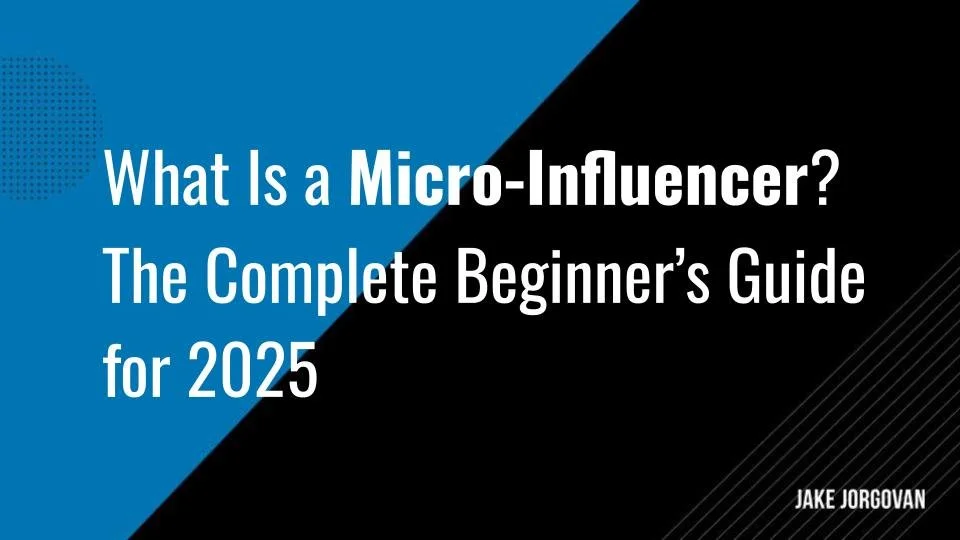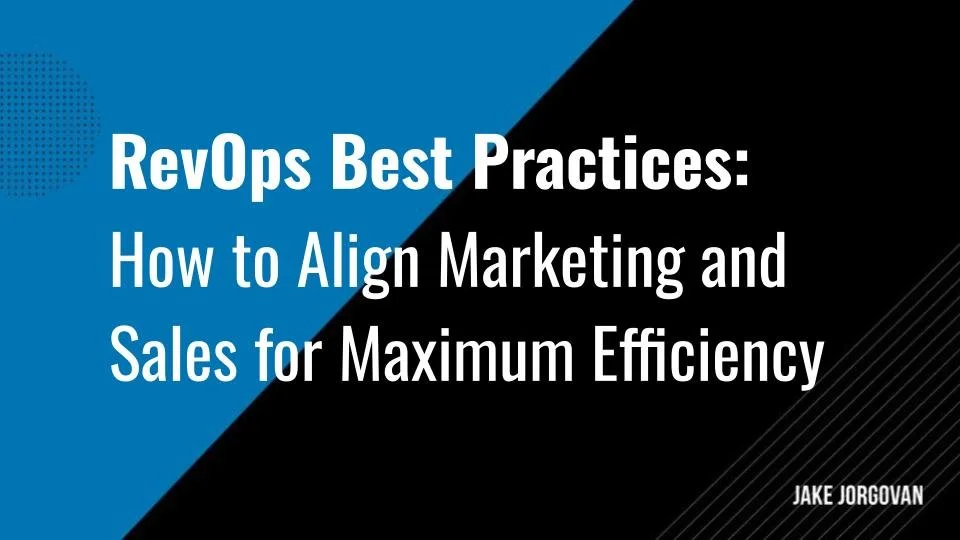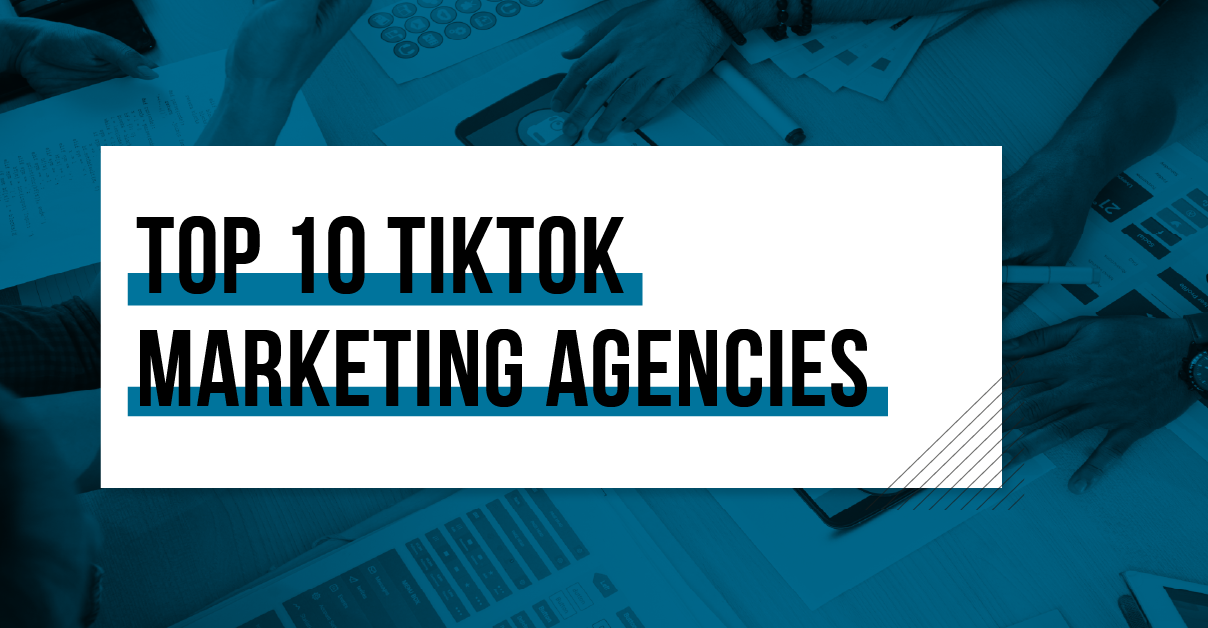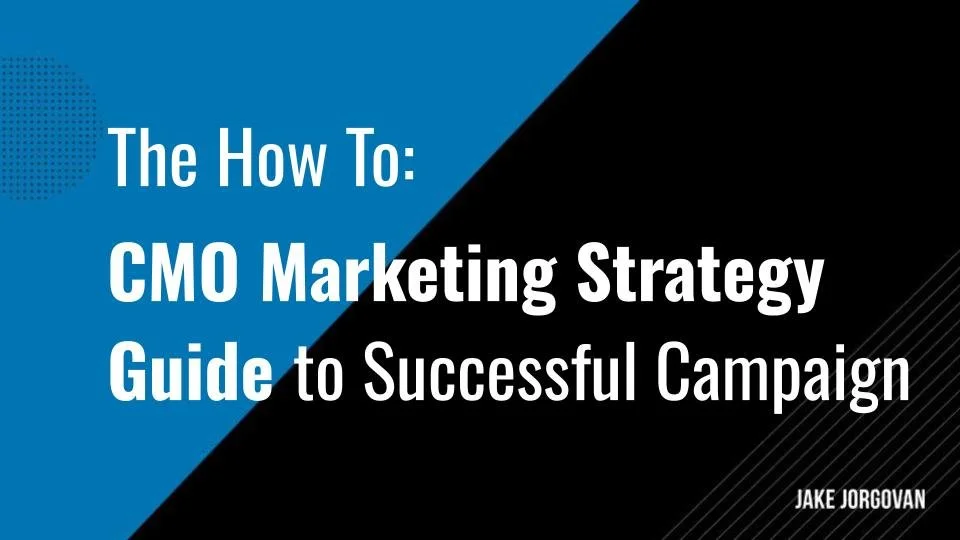Leadership in Marketing: The Chief Marketing Officer's Playbook for Driving Success
Today's role of a Chief Marketing Officer (CMO) goes beyond traditional marketing. It's about leadership that drives not just brand awareness, but overall business growth.
Good leadership in marketing directly influences customer engagement, market positioning, and innovative strategies, all of which are crucial for staying ahead in competitive markets.
This article is a guide for CMOs looking to enhance their leadership skills. It offers insights, strategies, and actionable tips to help CMOs steer their teams and companies toward success.
Leadership in Marketing: The Chief Marketing Officer's Playbook
Tell Better Stories: Beyond traditional marketing, develop compelling narratives that resonate emotionally with audiences, fostering a stronger connection to the brand.
Encourage Responsible Marketing: Advocate for ethical marketing practices that consider social and environmental impacts, building trust and a positive brand image.
Adopt Agile Methodologies: Implement agile principles in marketing operations to increase responsiveness, flexibility, and collaboration within the team.
Cultivate Thought Leadership: Position yourself and your team as thought leaders in the industry through insightful content, speaking engagements, and active participation in industry forums.
Invest in Talent and Diversity: Focus on hiring diverse talents and nurturing their development, recognizing that multiple perspectives can lead to more innovative marketing solutions.
Balance Short-term Wins with Long-term Vision: While focusing on achieving immediate goals, ensure that strategies align with the long-term vision and objectives of the organization.
Harness the Power of Networking: Build and maintain a robust professional network to gain insights, forge partnerships, and stay informed about industry trends and best practices.
1. Tell Better Stories
As a CMO, storytelling in branding is crucial for deepening your brand's emotional connection with its audience. This strategy goes beyond conventional marketing by infusing your brand's narrative with a human element, making it more relatable and memorable. A well-crafted story can enhance brand recall and foster customer loyalty, setting your brand apart in a competitive market.
Additionally, storytelling aligns your marketing team around a unified narrative, ensuring consistency in all communications. This alignment not only maintains brand integrity but also imbues your team with a sense of purpose. Your team will feel like they're part of a larger story rather than merely selling a product.
From a broader perspective, storytelling can spur growth. It makes your brand more appealing to investors and partners, signaling a deeper market connection and potential for sustained customer relationships. By integrating storytelling in your branding, you're not just implementing marketing tactics; you're crafting a legacy that resonates with your audience, your team, and the market at large.
Take, for example, Nike’s Equality campaign, which shared stories about athletes from diverse backgrounds to promote diversity and celebrate differences.
2. Encourage Responsible Marketing
As a CMO, championing responsible marketing is not just an ethical stance, but a strategic one that brings tangible benefits to your organization. In an era where consumers are increasingly socially and environmentally conscious, your commitment to responsible marketing can significantly enhance brand reputation and trust.
Pro tip: This approach goes beyond avoiding misleading claims to actively promote transparency, sustainability, and social responsibility in your marketing efforts.
By advocating for responsible marketing, you position your brand as a leader in corporate responsibility, which can be a key differentiator in crowded markets. Furthermore, this stance mitigates the risk of backlash or negative publicity associated with irresponsible marketing practices. Maintaining a positive brand image is crucial in the digital age, where information spreads rapidly, and responsible marketing practices are instrumental in achieving this.
But there are other advantages too.
Internally, a commitment to responsible marketing can foster a culture of ethics and sustainability within the organization. This culture enhances employee morale and retention while attracting top talent seeking to work for companies with strong ethical values.
One of the best examples and a pioneer of this is TOMS Shoes. Their One Day Without Shoes campaign encouraged customers to share a photo of their TOMS on social media, and for each photo, the company would donate a pair of shoes to children in need.
Almost 300,000 photos were shared (and shoes donated), which made a hugely positive impact in the world while massively boosting TOMS’ profile and reputation as an ethical brand.
3. Adopt Agile Methodologies
Agile marketing focuses on speed, flexibility, and customer feedback, allowing you to respond quickly to market changes and consumer trends. This approach contrasts with traditional, rigid marketing plans, allowing for rapid iteration and adaptation.
One key benefit of agile marketing is improved team productivity and morale. Agile teams work in sprints, focusing on high-priority tasks, which fosters a sense of accomplishment and clarity. This iterative process allows for continuous improvement based on real-time feedback, keeping your strategies relevant and effective.
Agile methodologies also enhance cross-functional collaboration, breaking down silos within the organization. This integration leads to a more holistic approach to marketing, aligning it closely with sales, product development, and customer service to ensure that marketing strategies are well-informed and comprehensive.
Finally, agility in marketing empowers data-driven decision-making. By continually testing and learning from outcomes, you can make informed adjustments to campaigns, maximizing ROI and efficiency. This approach is particularly valuable in digital marketing, where consumer behaviors and technologies evolve rapidly.
LEGO adopted an agile approach by initially transforming 20 product teams, five of which became self-organizing Scrum teams. Despite early agility within teams, inter-team collaboration was challenging until LEGO implemented the SAFe framework, enhancing coordination through regular extensive planning sessions and aligning long-term objectives at the portfolio level with broader business strategies.
4. Cultivate Thought Leadership
By positioning yourself as a thought leader, you become a trusted source of information and insights within your industry. Gaining this status is not about enhancing your personal brand.
You are actually elevating your company's reputation, setting it apart as an authority in its field.
And that has numerous benefits:
You build and nurture relationships with key stakeholders, including customers, partners, and industry influencers. Your insights and perspectives can influence industry trends and discussions, giving your company a voice in shaping the market.
Thought leadership contributes significantly to content marketing efforts. Producing insightful, authoritative content drives engagement and generates higher-quality leads. This content is a valuable resource for your audience, fostering trust and loyalty.
You're better positioned to identify and capitalize on emerging trends and opportunities, providing strategic direction to your company. Your insights can guide innovation and influence decision-making processes, ensuring your company remains at the forefront of industry developments.
When it comes to excellence in thought leadership, it’s hard to think of a better example than IBM. They constantly put out original, insightful content across all channels, combined with in-depth research and studies, to position them on the very cutting edge of their industry.
5. Invest in Talent and Diversity
Investing in talent and diversity is a crucial strategy for you as a CMO. A diverse team brings a wealth of perspectives, experiences, and ideas, which is invaluable in developing innovative marketing strategies that resonate with a broad audience. Diversity in your team can lead to more creative solutions, as varied viewpoints often result in more effective and out-of-the-box thinking.
Pro tip: One significant benefit of this investment is greater brand relevance and appeal across different demographics.
By understanding and reflecting diverse customer experiences in your marketing campaigns, you can connect more authentically with various audience segments. This approach not only improves customer engagement but also expands market reach.
Moreover, diverse teams are better at problem-solving and decision-making. The varied perspectives contribute to a more comprehensive analysis of challenges and opportunities, leading to more informed and effective marketing strategies.
Sodexo offers a good example of building diverse teams:
6. Balance Short-term Wins with Long-term Vision
Balancing short-term wins with a long-term vision ensures immediate marketing successes contribute to your company's overarching goals, creating a sustainable path for growth and innovation.
Focusing on short-term wins, such as quarterly sales targets or campaign-specific metrics, is crucial for maintaining momentum and demonstrating the effectiveness of your marketing strategies. These victories are vital for team morale and stakeholder confidence, providing tangible evidence of your marketing department's impact.
Pro tip: Remember to align these short-term objectives with your long-term vision.
This alignment ensures that each marketing initiative drives immediate results and builds toward future goals, such as market expansion, brand evolution, or digital transformation.
Besides, you avoid the pitfalls of short-sighted tactics that may yield quick results but could potentially harm your brand's reputation or sustainability in the long run.
7. Harness the Power of Networking
In today's interconnected business landscape, the relationships and connections you build can be as valuable as your marketing skills. Networking:
Helps you stay ahead of industry developments. Regular interactions with peers, thought leaders, and innovators offer a first-hand look at emerging trends, technologies, and consumer behaviors.
Opens doors to potential partnerships and collaborations that can enhance your marketing campaigns and broaden your reach. And a strong network can be a source of support and advice. The collective wisdom of your network can be a powerful asset in navigating challenges, validating ideas, or providing mentorship.
Can lead to new business opportunities, enhanced brand visibility, and a stronger position in the market. Your connections can also play a role in attracting talent, as your network may refer skilled professionals to your organization.
Pro tip: Platforms like the CMO Network are a great place to start.
Closing thoughts
This article explored some crucial strategies for CMOs when pursuing more effective leadership skills.
As a CMO, continually adapt and apply these strategies to steer your team forward. Remember, exemplary leadership in marketing is not just about managing campaigns; it's about inspiring change, driving growth, and shaping the future of your brand.
































